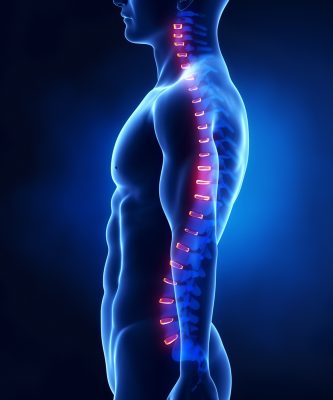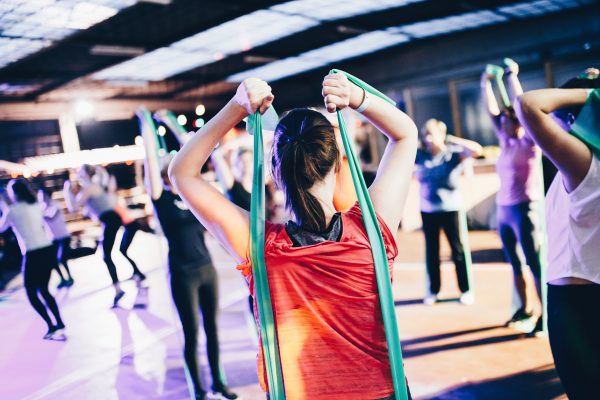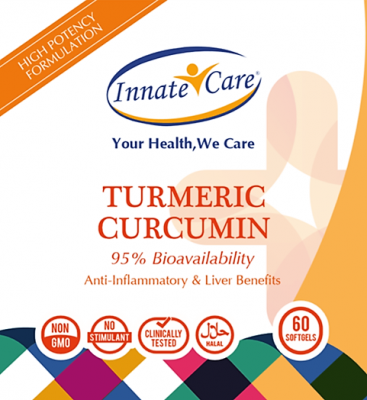No products in the cart.
Pain, Pain Management, Therapy
Slip Disc (Herniated Disc)
What Is Slip Disc?

A Slip Disc is an intervertebral disc of the spine that has lost its normal shape and/or consistency. Our spines are made up of bones(vertebrae) stacked onto each other, cushioned by discs. Your intervertebral discs are spinal shock absorbers and help transfer load evenly.
Each disc consists of two parts: A soft gelatinous interior and a harder tougher outer ring. Any harm caused, mishaps or weakness can cause the interior to protrude through the outer ring. It is also known as herniated, slipped or prolapse disc.
This will result in pain and discomfort. When a Slip Disc occurs , the entire motion segment – consisting of connective tissues, adjacent vertebrae, nerves and blood vessels may be affected. Slip discs are commonly found by the neck or lower back.
Causes of Slip Disc
Slip disc is most often the result of a gradual aging process called disc degeneration. Aging causes the disc to be less flexible, making it more prone to strains, ruptures and tears.
More causes include:
- Natural degeneration (Aging process)
- Trauma to the disc that may be caused by heaving lifting with wrong posture. Or externally such as a whiplash harm.
- Occupation: Jobs that are physically demanding or sedentary. Repetitions in lifting, pushing ,pulling and bending increases the risk of Slip Disc.
- Smoking: More prone to excessive coughing that applies strain to the disc and back. Smoking causes a lack of nutrition in the disc as it inhibits diffusion of nutrition into the disc radically.
- Excessive weight (Obesity)
- Repetitive motions (Wear and tear)
- Sedentary Lifestyle
Most people are unaware of the cause of their Slip Disc. Being educated of the possibilities can help assist prevention. Prevention is always better than cure.
Prevention and Precaution

To help lower your risk of slip disc you may do the following:
- Exercise: Strengthening of back and abdomen muscles can help stabilize and support the spine. Maintaining a healthy weight helps lower any unnecessary pressure applied to the spine.
- Maintaining good posture: Keeping your back straight and aligned especially while sitting for long periods of time. Helps reduce pressure on the spine and disc.
- Staying mobile: Stretching increases mobility and helps remove pressure and tension build up by the physical demands of your daily life.
- Balance out sedentary careers: Be sure to get up and stretch between intervals at your desk. A nice walk to the toilet or pantry can help prevent conditions such as muscle stiffness that can aggravate Slip Disc.
- Proper technique to Lift heavy objects: Make sure you lift with your legs and it does most of the work; not your back.
- Stop smoking: Removes the many factors that smoking contributes to a relapse or first time Slip Disc.
- Proper Footwear: Certain footwear such as high-heels makes your spine go out of alignment.
Symptoms of Slip Disc
Slip Disc commonly occurs at the lower back, they can also occur at the neck. Signs and symptoms such as pain variy from where the disc is situated, or if it is pressing on a nerve. It is possible to have Slip Disc without any symptoms. You might not know it until you get your own spinal image.
More symptoms include:
- Numbness, tingling and pain, commonly found only on one side of the body.
- Aching, tingling or burning sensation in the affected area.
- Muscle weakness.
- Pain that travels from shoulder and arms to hands and feet
- A pain is felt near or between shoulder blades.
- A pain that increases you when bending or turning your neck.
Therapy Programs And Interventions
Our consultants will tailor a program specially for you by diving into understanding your lifestyle. From your circadian cycle, your diet to the physical demands of work that you go through. We will not only help you recover but also equip you with the tools necessary to prevent further aggravations in the future.
We will be able to provide interventions to correct any muscle tension and joint restrictions while prescribing the right exercises to support recovery. Such exercise will be able to help create good habits for the patient, as well as educate them through first hand experience.

This therapy program is specially made for Slip Discs. This advanced rehabilitative equipment is able to release stress and create negative pressure for the back providing pain relief.
Decompression therapy works by gently stretching your spine, giving the herniated disc a chance to slip back into their intended slots. This does not only help realign your spine, but also provides an alternative to surgery.
We are proud to say that this non-invasive method has also helped benefit one of our patients who was paralyzed from the waist down. – see our video with Mr Ho!

With 11 essential ingredients, Innate Care Physio Aid Joint Health supplements maximises the absorption of all essential nutrients into your joints and bones. Allowing a healthy growth of cartilage and bones. Containing antioxidants and anti-inflammatory ingredients, you will face a reduction in joint inflammation and pain.

Innate Care: Turmeric Curcumin offers superior curcumin absorption compared to other turmeric brands. With its patented formula, it has the highest concentration of curcumin resulting in 48x more absorption. This helps with join support, cartilage formation, anti-inflammation, liver detoxification and cholesterol regulation.
